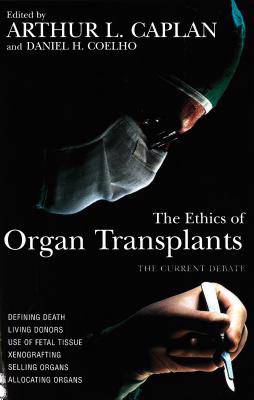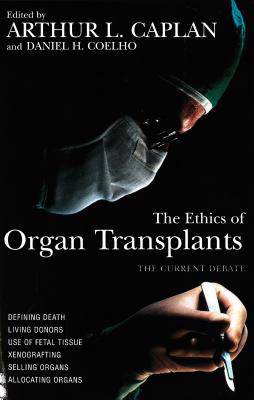
- Afhalen na 1 uur in een winkel met voorraad
- Gratis thuislevering in België vanaf € 30
- Ruim aanbod met 7 miljoen producten
- Afhalen na 1 uur in een winkel met voorraad
- Gratis thuislevering in België vanaf € 30
- Ruim aanbod met 7 miljoen producten
Zoeken
The Ethics of Organ Transplants
€ 35,95
+ 71 punten
Omschrijving
No one argues the need for transplants. The debate centers on how to satisfy the great need for healthy organs. Advances in medical technology and science have made organ procurement, or the search and transfer of organs and tissue from one body to another, a very important issue. Since the demand for healthy organs far exceeds the supply, many questions enter this debate, blending medicine with politics, ethics, research, religion, and other concerns. How are we to meet the need? Can we do so and still respect personal ethics and religious convictions? Can organs be obtained without turning medical emergencies into free-market enterprise? Should people be permitted to sell their organs? Should animals be sacrificed to save the lives of humans? Could cloning be considered as a future source of organs?With more than thirty of the most important, influential, and up-to-date articles from leaders in ethics, medicine, philosophy, law, and politics, The Ethics of Organ Transplants examines the numerous and tangled issues that surround organ procurement and distribution.Co-edited by Dr. Arthur L. Caplan, a world recognized scholar in bioethics and health policy, this volume divides the issue into five related areas: (1) sources of organs for transplantation and various methods of transplants, including living donations, fetal tissue use, defining brain death, and nonhuman organ transfer; (2) policy, including presumed consent, required requests, and mandated choice to relieve the shortage problem; (3) the ethics of selling organs, the effect on supply and use of organs, making organ procurement a global effort; (4) case histories and questions on who should (not) receive transplants; and (5) the value
Specificaties
Betrokkenen
- Uitgeverij:
Inhoud
- Aantal bladzijden:
- 356
- Taal:
- Engels
- Reeks:
Eigenschappen
- Productcode (EAN):
- 9781573922241
- Verschijningsdatum:
- 1/03/1999
- Uitvoering:
- Paperback
- Formaat:
- Trade paperback (VS)
- Afmetingen:
- 152 mm x 227 mm
- Gewicht:
- 458 g

Alleen bij Standaard Boekhandel
+ 71 punten op je klantenkaart van Standaard Boekhandel
Beoordelingen
We publiceren alleen reviews die voldoen aan de voorwaarden voor reviews. Bekijk onze voorwaarden voor reviews.










